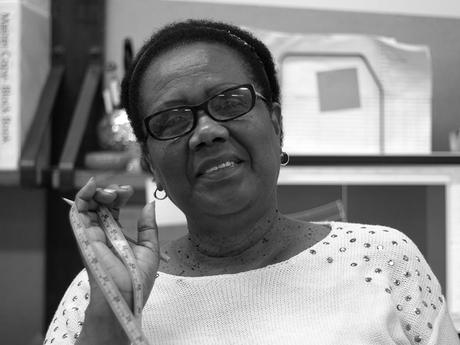
Jackie is ma’ girl, ma’ West Philly girl. Just like New York City, Philadelphia is broken into several sections. There’s North Philly (Northern Liberties), South Philly (Geno’s and Pat’s), Center City (Rittenhouse Square), and then there’s University City/West Philly. Across the Schukyill River and next to Drexel University and The University of Pennsylvania (UPenn & Wharton School of Business), University City and West Philly are like the Brooklyn of Philadelphia. It’s quieter and more suburban than the north, south, and center of the city. This is where Jackie and I live. She is a local pattern maker and seamstress who was born in Trinidad. When I found out she was from the islands, we clicked. Despite my white complexion, I spent most of my summers in The Bahamas, island hopping on my dad’s boat. Jackie’s heavy accent brings me back home – not back to Kansas like Dorthy in The Wizard of Oz but Ft. Lauderdale, Florida.
Pay close attention to her thoughts on the difference between pattern making by hand and pattern making on a computer. This is something I am struggling with as I make the pattern for the jumper. Making a pattern for yourself, you can take into account for your body’s quirks, but it’s a whole different story when you’re trying to create a pattern that has to fit many people and many sizes.

I was born in Trinidad, which in the southeastern part of the Caribbean.

I learned to sew as a child from my mother. She taught me the basics and when I was in my teens, I enrolled in courses for making pants, jackets, and such so that I could become more skilled. I came to the United States in 1976 and moving to Brooklyn, I got a job and learned even more about sewing and sample making. In 1981, I moved to Philadelphia, where I still live. Philadelphia is my home.
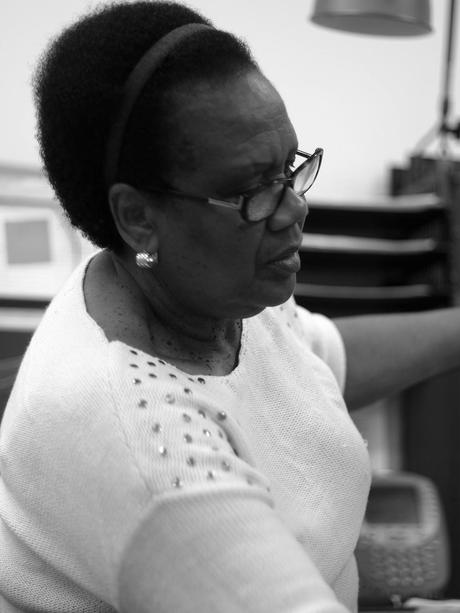
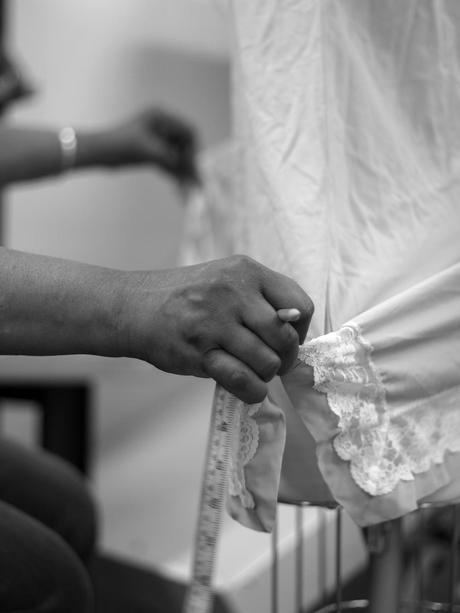
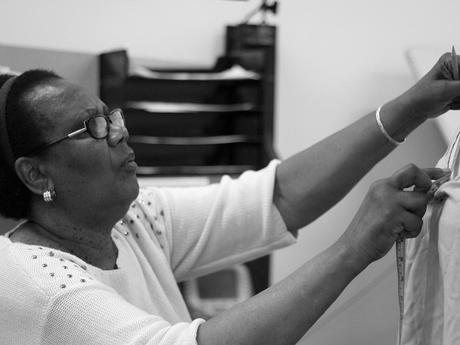

At night, more specifically, after nine o’clock. It’s quieter and I get a lot done.

Pattern making by hand is more custom made. When you use a pencil and eraser to make or alter a pattern, you can follow the fit of the body instead of the being tied to measurements and symmetry. A body is not perfectly proportioned – one arm is longer than the other, one hand is bigger than the other, and one side of the body is fatter than the other. You can account for the body’s quirks with hand drawn and drafted patterns, but in the computer, the pattern has to make sense and everything has to be equal. The left has to equal the right and the right has to equal the left.
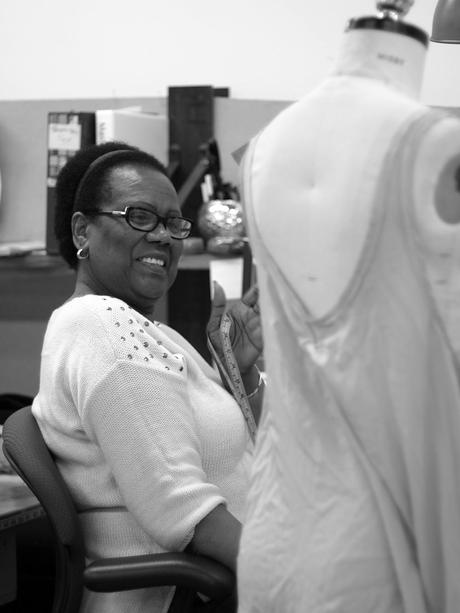
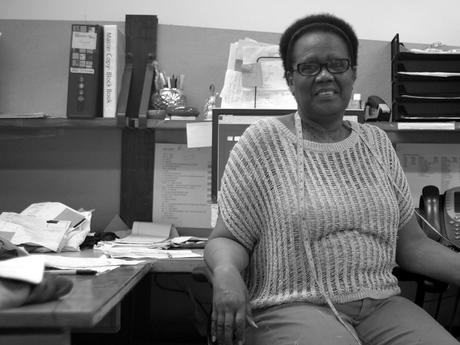

Balance. In order to achieve a nicely fitting garment, balance is crucial. It affects the hang, the look, and the fall of a garment. If the balance if off, let’s say in the armhole, the garment will hike in the front or in the back (if it’s a dress) or diagonal drag lines will appear in the back area (if it’s a shirt, top, or blouse). Balance is key.

An awl and a pair of embroidery scissors.

